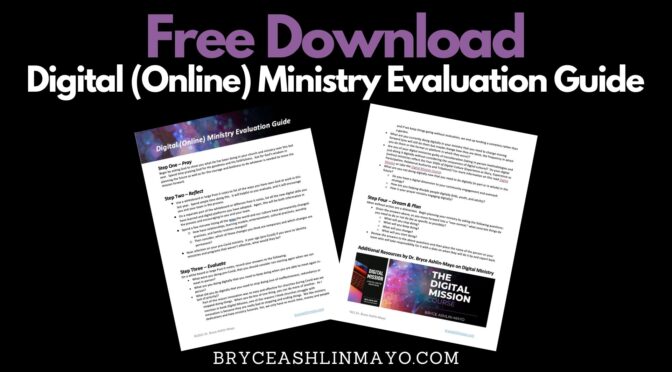Dear Pastors and Church Leaders,
I have never seen so much discouragement in ministry! Almost every ministry friend and colleague across denominations and traditions are feeling beat up by an onslaught of discouragement.
Like you, I have felt the dirge of discouragement that echoes in Covid’s wake. Although I hesitate to assume what others are experiencing, I think it is fair to say that a long season of disconnection, isolation, disruptions of the feedback loops we relied upon to gauge effectiveness, constant pivots, and relational divisions have taken a compounded toll. Maybe you can relate.
If your hope has been pillaged in Covid’s wake, I want to infuse some courage into your leadership veins. Like Joab to David in 2 Samuel 10:12, I want to call you to good courage.
“Be of good courage, and let us be courageous for our people, and for the cities of our God, and may the LORD do what seems good to him.” 2 Samuel 10:12, ESV
As you look ahead with weary eyes and worn souls, may you embrace “good courage.” Sometimes we can embrace a false or counterfeit courage that seems brave on the surface but only carries the veneer of valour.
Counterfeit courage is easy to conjure. It is often based on self-confidence and self-sufficiency. Because it is based on us, it is fragile and brittle. But that is not the courage Joab calls David too. Joab calls David to good courage rooted in God’s goodness for what seems good to God.
False courage is easy to pass off in times of abundance and excess. But when times are difficult and good news is scarce, counterfeit courage wears thin. In seasons of trial, our courage is sifted.
Not only does Joab give David a call to courage, but he also defines it in such a way that we can evaluate and sift courage in our lives to see if it is good or not. To sift the courage in your life, ask yourself who your courage is for? Joab calls David to good courage for the people and the city, not for David and his self-preservation.
Good courage is always for others. Thus, if you are looking for the courage to fan your reputation, puff up your pride, or advance your position, it ceases to be good. It has become corrupted by selfishness and is no longer found in a good God. However, if your courage is for others, your church, your family, etc., it proves to be genuine and good, able to weather the storms of leadership in self-sacrifice, discomfort, and suffering for a greater good and God’s Glory.
Pastors and church leaders, as you enter the season ahead, may you hear the invitation: “Be of good courage, and let us be courageous for our people, and for the cities of our God, and may the LORD do what seems good to him.”
Jesus is where your living hope is found, your good courage is rooted, and where the rest for the weary is discovered. Reject counterfeit courage rooted in prideful arrogance and embrace good courage focused on others and rooted in a good and gracious God for His Glory. This is the courage that will carry you through!
Pastors and church leaders, be of good courage!






